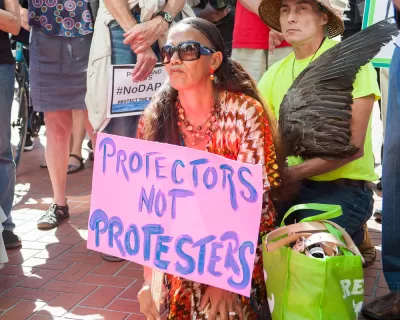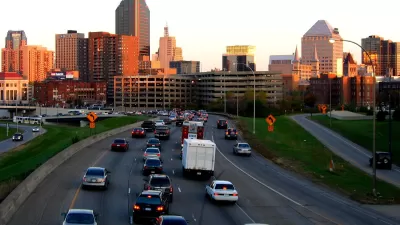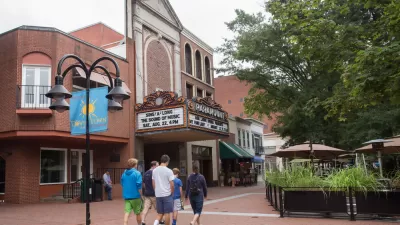A day of reckoning has come for state lawmakers who proposed protections for motorists who attack protestors from behind the wheels of their car. A tragedy at protests in Charlotte has cast new light on the dangerous potential of such laws.

"The author of a Texas bill to protect drivers who injure demonstrators found himself the target of outrage on social media this weekend after the hit-and-run death of a young woman protesting white supremacists in Charlottesville, Va," reports Lauren McGaughy.
"Rep. Pat Fallon filed legislation to protect motorists who hit demonstrators 'blocking traffic in a public right-of-way' if the driver exercises 'due care,'" explains McGaughy. After the tragedy in Charlottesville, Rep. Fallon (R-Frisco) spoke with The Dallas Morning News and said his law would not protect a "jackass" like the driver of the vehicle in Charlottesville. Rep. Fallon also posted this statement on Facebook, not exactly implying any regret for the proposal:
To the hundred or so alt left folks that contacted us with outrageous hate (so much for tolerance):
What happened in VA was atrocious and yes it was murder. Any leveled headed American would condemn it as I do. We need to take care to be consistent and condemn all racism and hate. It's ugly, counter productive and pointless. We can love those we disagree with it. Unfortunately the media seems to have preferential victims depending on their agenda. That's sad. At the end of the day We are all broken-hearted that this young lady's life was taken far too soon and in such a horrifically evil way. Our prayers are with her family and friends.
Still, the legislation was not expected to pass the house, even before the violence over the weekend in Virginia. Texas isn't the only state to consider such legal protections for motorists encountering protests in the public right of way. In January, Planetizen picked up news of a similar bill proposed in North Dakota. That law read as follows: "A driver of a motor vehicle who negligently causes injury or death to an individual obstructing vehicular traffic on a public road, street, or highway may not be held liable for any damages."
In total, lawmakers in six states have proposed similar legislation this year alone, as detailed in a separate article by Paul Blest. After North Dakota, Tennessee, Florida, Rhode Island, and North Carolina all flirted with the idea. Only North Carolina's bill, approved by the state's House of Representatives, passed beyond committee. That bill reads as follows: "A person driving an automobile who is exercising due care and injures another person who is participating in a protest or demonstration and is blocking traffic in a public right-of-way, is immune from civil liability for the injury." That bill is expected to be picked up the North Carolina Senate this year or next, according to Blest.
Writing for Streetsblog USA, Angie Schmitt takes accountability a step further, by naming the names of the legislators behind the proposed laws, and describing some of the arguments they gave to support the goals of the legislation.

Maui's Vacation Rental Debate Turns Ugly
Verbal attacks, misinformation campaigns and fistfights plague a high-stakes debate to convert thousands of vacation rentals into long-term housing.

Planetizen Federal Action Tracker
A weekly monitor of how Trump’s orders and actions are impacting planners and planning in America.

In Urban Planning, AI Prompting Could be the New Design Thinking
Creativity has long been key to great urban design. What if we see AI as our new creative partner?

Milwaukee Launches Vision Zero Plan
Seven years after the city signed its Complete Streets Policy, the city is doubling down on its efforts to eliminate traffic deaths.

Portland Raises Parking Fees to Pay for Street Maintenance
The city is struggling to bridge a massive budget gap at the Bureau of Transportation, which largely depleted its reserves during the Civd-19 pandemic.

Spokane Mayor Introduces Housing Reforms Package
Mayor Lisa Brown’s proposals include deferring or waiving some development fees to encourage more affordable housing development.
Urban Design for Planners 1: Software Tools
This six-course series explores essential urban design concepts using open source software and equips planners with the tools they need to participate fully in the urban design process.
Planning for Universal Design
Learn the tools for implementing Universal Design in planning regulations.
Gallatin County Department of Planning & Community Development
Heyer Gruel & Associates PA
JM Goldson LLC
City of Camden Redevelopment Agency
City of Astoria
Transportation Research & Education Center (TREC) at Portland State University
Jefferson Parish Government
Camden Redevelopment Agency
City of Claremont




























